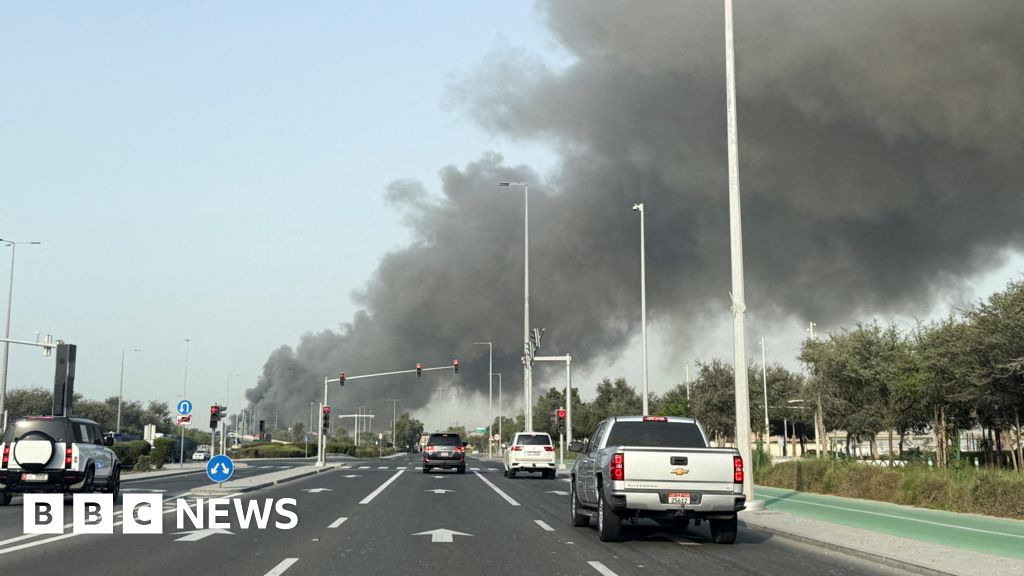A delegation of senior North Korean military personnel left for Moscow on Monday, with analysts suggesting that Pyongyang is preparing to dispatch more troops in the coming weeks to help Russia in its war against Ukraine.
After visiting North Korea last month, the head of Russia's Security Council and former defense minister, Sergei Shoigu, told Russian media that North Korean leader Kim Jong-un had agreed to send 6,000 more military engineers and workers to the Kursk region bordering Ukraine, underlining the growing military ties between Moscow and Pyongyang.
South Korea's National Intelligence Service (NIS) has confirmed those figures. The spy agency also says that North Korea has now provided Russia with more than 10 million artillery rounds and missiles, receiving economic cooperation and military technology in return.
Why Russia and North Korea can't quit each other (for now)
Mutually beneficial arrangement
Analysts say that given the benefits both sides have derived from their alliance, it is likely that North Korea will send more troops to fight alongside their Russian counterparts over the longer term.
"Both Moscow and Pyongyang are getting what they want from this agreement," said Yakov Zinberg, a professor of international relations at Tokyo's Kokushikan University.
"We know that Russia has sustained hundreds of thousands of killed and wounded and that the government does not want to expand the mobilization into the big cities, like Moscow and St Petersburg, because that could endanger [Russian President Vladimir] Putin's regime in those cities," he told DW.
North Korean authorities, meanwhile, have sought to use the deployments as an opportunity to rouse the nation.
In scenes that appear to have been staged to whip up national fervor before the deployment, state-run media broadcast footage on Monday of Kim placing a North Korean flag over a coffin at a ceremony for the return of the remains of troops killed in the fighting.
While the video clip showed just six coffins, Western intelligence reports suggest that of the roughly 11,000 North Korean troops committed so far, some 6,000 have been killed, wounded or captured.
The footage also showed Kim crying during a joint cultural event with Russia in Pyongyang on Saturday to mark the one-year anniversary of his signing of a bilateral military pact with Russian leader Vladimir Putin.
 Kim has tried to use the troop deployment as a national rallying cryImage: Korean Central Television (KCTV)/AFP
Kim has tried to use the troop deployment as a national rallying cryImage: Korean Central Television (KCTV)/AFPNorth Korean troops 'help Putin's regime'
While Pyongyang has used the deployment as a propaganda tool, the presence of North Korean troops is a boon to both Russian authorities and citizens.
"The majority of those who have been drafted up until now have been from the remote republics and there has been little resistance, but when I talk to Russians they always say they fear another mobilization," said Zinberg, who is originally from St Petersburg.
"When the government announces that 6,000 more North Korean troops will be sent to the front line, then they say they can relax because they know they are safe," he said. "So sending North Koreans actually helps Putin's regime."
Zinberg also says that using North Korean soldiers is calculated to "spread fear" among Ukraine's European allies, who previously hoped Russia would run out of men and materiel sooner rather than later, while having a nuclear-armed ally in East Asia will also keep the US, South Korea and Japan on their toes.
Ra Jong-yil, a former diplomat and senior South Korean intelligence officer, agrees that the "fundamental reason" why North Korea has agreed to send more troops is because of the losses that Russian has already sustained on the front lines.
"It seems that some of these troops will also be used as laborers to rebuild infrastructure in occupied areas, which is something that North Korean troops are good at because that is how they are often used in the North," he said.
Ra predicted that North Korea will "continue to send more personnel even after the fighting has ended, as Russia will still be very short of laborers to rebuild areas that have been affected by the fighting."
North Korean troops suffer 'mass casualties' in Russia
Can helping Russia ensure Pyongyang's survival?
Intelligence assessments indicate that Russia has repaid North Korea with fuel, food and access to advanced military equipment that was previously difficult for Pyongyang to secure as the regime is under strict United Nations embargoes and sanctions over its nuclear missile program.
Another benefit for Pyongyang is simply the prestige of being a key ally of a global power, an alliance that North Korea may very well use to its advantage in its trade and security dealings with China, which has long been the regime's closest partner and protector.
"They like the status that being a friend of Russia brings," said Zinberg.
"And I expect them to continue to remain close to Moscow even after the war ends, offering troops and laborers, because they know it can bring them rewards that help prop up the regime and ensure it continues."
Edited by: Karl Sexton

 8 months ago
10
8 months ago
10








